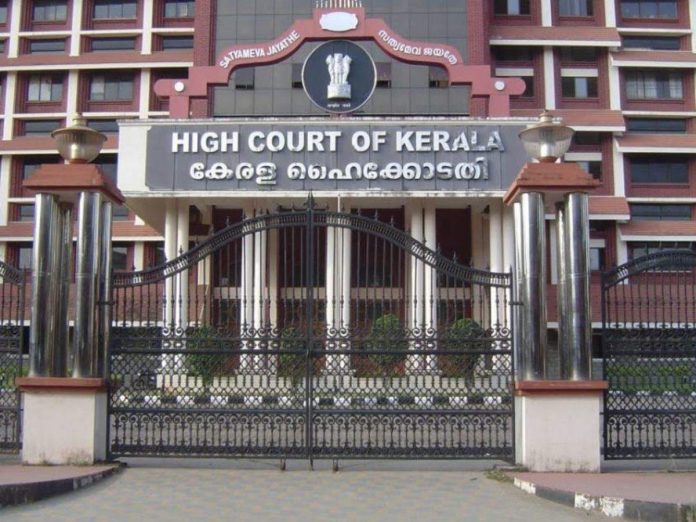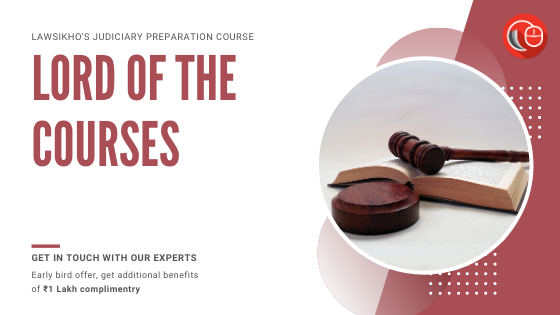This article is written by Pranav Sethi, from SVKM NMIMS School of Law, Navi Mumbai. This article analyzes summons via WhatsApp: in light of the case of Anoop Jacob v. State of Kerala which highlighted that issuing a summons via WhatsApp was not an appropriate method of service.
Table of Contents
Introduction
“A fair trial is one in which the rules of evidence are honored, the accused has competent counsel, and the judge enforces the proper courtroom procedures – a trial in which every assumption can be challenged.” – Harry Browne
Many courts across the country are collaborating with the use of technology in judicial proceedings, particularly in the process of representing official documents. The Delhi High Court issued an order that established a landmark: “Double tick on WhatsApp is a prima facie proof of summons delivery.”
Personal service is the most common form of delivering a summons, which requires someone to personally present the summons to the other party. Based on the jurisdiction or whether the prosecution is civil or criminal, there might be several limitations.
If the serving officer is unable to locate the defendant after due diligence, a copy of the summons shall be affixed on the outer door or any visible part of the house where the defendant normally lives, runs a company, or personally works for profit. With the individual services, the Court can order that the summons be delivered by regulated mail at the address in which the defendant, or his agent, personally and willingly lives, conducts business, or works for profit.
Mostly, summons are not delivered on time due to the lack of manpower or preparation, and more frequently due to the difficult task of interacting with people who refuse to accept delivery of summons. Significant legislative amendments have been made to the procedural laws to remedy current bottlenecks and implement improvements in the rules and procedures relating to proceedings. Furthermore, by incorporating reforms in rules and policies, High Courts have taken practical measures to solve the problems of delay caused by process operation. The Code of Civil Procedure, 1908, was amended in 2002 to include electronic summons service in Order 5 Rule 9(3), which states, “The Service of summons on Defendant can be rendered by giving a copy of the summons to the defendant via any electronic media such as Emails or Fax under rules prescribed by the High.”
Summons: an overview
A Summon is a document that a court issues to an individual or organization engaged in a lawsuit. A summons may be issued to an individual or an agency, requiring them to appear or remain present in court. An individual convicted of a crime or a witness in a legal case can be served with a summons. The Summon must state the name of the court before which the individual must remain present as well as the facts of the case and the deadline upon which the individual is required to appear. According to Section 61 of the Code of Criminal Procedure (Cr.P.C.), any summons provided by the Court must be in writing and include a separate copy signed by the Presiding Officer/Judge of the Court or any other officer approved by the Court.
Procedure for Issuances and Service of a Summon
Once the Presiding officer/Judge signs a summons and the Court seal is attached, the summon is then given to a Police Officer to represent the person summoned to the Court. Preferably, the summon must be delivered individually to the person called up by handing the duplicate copy of the summon. If the summoned person cannot be located, the summons will be issued to an elderly male family representative who lives with the convened person.
If the summons could not be delivered to the concerned citizen or any adult male family member living with him/her, the serving officer may attach a duplicate copy of the summons on the doorway or any other visible part of the household after performing the requisite proper research. After performing any required observations, the Court could either announce that the summon has been properly provided or send a new summon for operation in any method it deems appropriate.
Special Laws related to the Summons
As technology progresses at a rapid rate, the legislation is often forced to play catch-up. Part X and Order V, Rule 9 of the CPC, on the other hand, envision such a scenario, allowing High Courts to make rules and regulations governing their procedure as well as the procedure of Civil Courts within their jurisdiction. The Delhi High Court has made rules about summons service based on this. It has created the Delhi Court’s Service of Processes via Courier, Fax, and Electronic Mail Service (Civil Proceedings) Rules, 2010, which, as the name suggests, sets out the procedures for serving summonses.
The Karnataka High Court, on the other hand, has formulated rules about summons in its Karnataka (Case Flow Management in Subordinate Courts) Rules, 2005. It also places a burden on the petitioner to have the appropriate mailing address, without which delivery will not be undertaken. Further sets a seven-day deadline for the payment of the system fee and directs support through recorded delivery. These laws, however, have stayed mostly on paper.
Digitized Summons
Email-based Judicial Recognition for Summons
The Supreme Court has also acknowledged that due to the delay in serving procedure, arrears have continued to develop. Because of this, the court in Central Electricity Regulatory Commission v. National Hydroelectric Power Corporation Ltd decided in 2010 that it is permissible to submit an email notice along with the traditional method of serving notices. This procedure should be observed in commercial disputes and cases where immediate interim relief is sought in the Supreme Court. In these cases, the advocate-on-record submitting the appeal/petition should include the respondent company’s email address as well as a soft copy of the petition/appeal in portable paper format (PDF). Notification provided in such a case should be sent by email in addition to the traditional method of service.
The court also ordered the Cabinet Secretariat to provide highly centralized e-mail addresses of all Ministries/Departments/Regulatory Authorities, as well as the identities of Nodal Officers where applicable, to enforce this practice in government offices.
The importance of the email system of summons was also acknowledged by the Bombay High Court in Ksl and Industries Ltd v Mannalal Khandelwal and the State of Maharashtra.
Judicial Recognition for Summons through Messaging Applications
In addition to providing court notices via email, courts have started to recognize the value of applications such as WhatsApp for serving court notices. In the case of Tata Sons Limited & Ors v John Doe, the Delhi High Court granted the right to serve summons to a defendant via WhatsApp, messages, and emails. The Bombay High Court in Kross Television India Pvt Ltd v. Vikhyat Chitra Production and the Karkardooma District Court in Delhi both took similar positions. In this case, the summons was sent to the defendants through WhatsApp. These methods, however, show that the transition to electronic summons delivery has its limitations. It is hard to procure sufficient evidence of delivery of services in such situations, just as it is with email.
When a notification is sent on WhatsApp, the sender sees a double-tick. When the individual reads the post, the double ticks become blue ticks. It could be stated that a blue double tick is a true summons delivery. While presenting the order that recognized operation by messaging apps, the Apex Court orally recognized this reasoning. Such an interpretation, however, has its limits.
The receiver may disable the blue ticks, in which case the evidence of summons cannot be determined. Furthermore, there is presently no protocol in place if the party whose summons is sent changes her WhatsApp number, and the summons is now sent to someone else. If the summons is issued to an unexpected party in such critical situations, there may be further privacy issues. Courts around the board do not appear to allow summons via WhatsApp, most likely due to these limitations.
In addition to the hardships in finding evidence of operation, the courts have raised concerns about a shortage of capacity and infrastructure. In the case of Bhim Rathke v. RK Sharma, a Special Judge of the Patiala House Courts in New Delhi dismissed the complainant’s request to serve summons via email and WhatsApp. It turned down the service of summons through WhatsApp because the court system could not do so electronically.
The Case of Anoop Jacob v. State of Kerala
In this case, the Kerala High Court previously declared that issuing a summons via WhatsApp was not an appropriate method of service.
Although holding in abeyance a non-bailable arrest warrant provided by the Special Court for Charges related to MPs and MLAs towards Kerala Member of Legislative Assembly Anoop Jacob, Justice VG Arun made the observation. After failing to appear in court over the court’s summons through WhatsApp, he was given a non-bailable warrant.
The Contention of Parties to the Case
On the files of the Additional Chief Judicial Magistrate (Special Court for Cases involving MPs/MLAs), Ernakulam, the complainant is the first accused. The complainant was enraged by the non-bailable warrant granted to him, so the criminal miscellaneous petition was filed. The petitioner’s specific instance was that the summons, which was allegedly sent to his phone via WhatsApp, never received him because he had not installed the WhatsApp application on his phone.
The offences alleged are under Sections 143, 147, 149, 269, 271, and 188 of IPC, Section 118(e) of the Kerala Police Act and Sections 4(2)(a), 4(2)(e) and of the Kerala Epidemic Disease Ordinance, 2020.
Legislations discussed in the Case
After declaring WhatsApp an unacceptable mode of operation, the Bench considered Section 62 of the Code of Criminal Procedure and Rule 7 of the Kerala Criminal Rules of Practice.
The summons must be served following Section 62 of the Code. If service under Section 62 was not possible, the serving officer was required to attach a duplication of the summons to a prominent part of the house or homestead where the individual usually resides.
The court was then free to conduct whatever investigation it deemed necessary before declaring that the summons had been properly served or ordering new service in any manner it deemed appropriate.
Findings of the Court
The Court highlighted, “The above provisions do not provide for service of summons through WhatsApp”.
The Court emphasized that the revolution in the field of communication necessarily called for, “a more pragmatic approach regarding the mode and manner of service of summons.”
The Bench also mentioned an amendment to the Negotiable Instruments Act that required operation by speed post or authorized courier service, as well as judgments involving summons provided by both speed post and email. However, since none of these provided for the summons to be sent via WhatsApp, the Court ruled that it was not an appropriate mode of service.
As a result, the special court should not have granted the lawmaker a non-bailable warrant for failing to show up after obtaining the summons.
Conclusion
The courts’ rules and policies, as well as procedural laws, have established a proper process and system for serving the summons. WhatsApp has now been identified by courts as an alternative to traditional approaches. The courts have discovered a brand-new need for WhatsApp. However, it is critical to recognize that electronic means, especially WhatsApp, will not be able to replace “traditional models”. They are intended for special situations in which the defendants are hidden and avoiding court appearances.
References
- https://articlesonlaw.wordpress.com/2018/07/15/service-of-summons-in-civil-cases/amp/
- https://vidhilegalpolicy.in/research/summons-in-the-digital-age-integrating-information-and-communication-technology-in-the-process-of-serving-summons/
LawSikho has created a telegram group for exchanging legal knowledge, referrals and various opportunities. You can click on this link and join:
 Serato DJ Crack 2025Serato DJ PRO Crack
Serato DJ Crack 2025Serato DJ PRO Crack











 Allow notifications
Allow notifications


